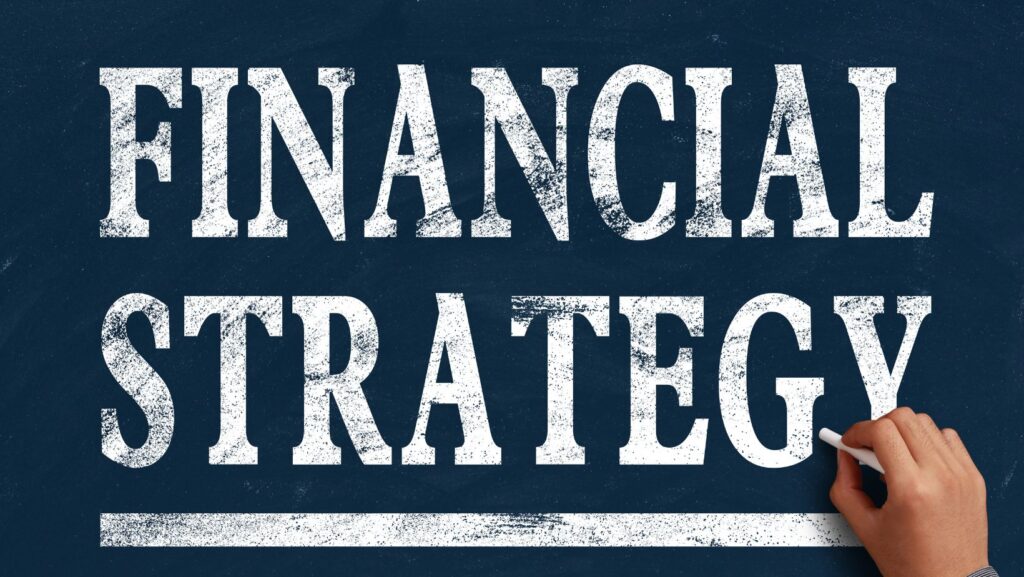In the heart-pounding world of finance, everyone has faced setbacks. But it’s not the fall that defines us—it’s how we rise again. That’s where financial recovery strategies come into play. They’re the lifeboats in a stormy sea of economic uncertainty, offering a lifeline to those struggling to keep their financial heads above water.
So, let’s embark on this journey together, exploring the robust world of financial recovery strategies. Remember, it’s not about where you’ve been but where you’re headed.
Financial Recovery Strategies
 Financial recovery strategies encompass practical, strategic measures adopted by individuals or businesses striving to regain fiscal health. They involve three primary layers. First, identification of financial pitfalls – it could include overwhelming debts or unproductive investments. Second, crafting tailored solutions such as budget restructuring or refinance options for these issues. Third, employing controls and monitoring systems to ensure non-recurrence of earlier financial mishaps. For example, if a business has accrued excess debt, strategies might include debt consolidation, improved budgeting practices, and regular financial audits. By focusing on these strategic layers, it becomes possible for individuals and enterprises alike to emerge from financial setbacks, securing a stable financial future.
Financial recovery strategies encompass practical, strategic measures adopted by individuals or businesses striving to regain fiscal health. They involve three primary layers. First, identification of financial pitfalls – it could include overwhelming debts or unproductive investments. Second, crafting tailored solutions such as budget restructuring or refinance options for these issues. Third, employing controls and monitoring systems to ensure non-recurrence of earlier financial mishaps. For example, if a business has accrued excess debt, strategies might include debt consolidation, improved budgeting practices, and regular financial audits. By focusing on these strategic layers, it becomes possible for individuals and enterprises alike to emerge from financial setbacks, securing a stable financial future.
Importance of Financial Recovery Strategies
 Financial recovery strategies present an essential asset in weathering economic storms and achieving a secure financial future. Beyond aiding in bouncing back from money mishaps, these strategies empower individuals and businesses to steer clear of recurring errors. For instance, a business with a strategic financial recovery plan can rebound from a downturn, mitigate potential risks, and ensure its long-term sustainability. Similarly, individuals applying these concepts gain from enhanced budgeting, efficient debt management, and greater financial stability. Therefore, recognizing the profound impact of these strategies, it’s imperative for individuals and organizations to incorporate practical financial recovery measures in their financial management practices to foster resilience and stability.
Financial recovery strategies present an essential asset in weathering economic storms and achieving a secure financial future. Beyond aiding in bouncing back from money mishaps, these strategies empower individuals and businesses to steer clear of recurring errors. For instance, a business with a strategic financial recovery plan can rebound from a downturn, mitigate potential risks, and ensure its long-term sustainability. Similarly, individuals applying these concepts gain from enhanced budgeting, efficient debt management, and greater financial stability. Therefore, recognizing the profound impact of these strategies, it’s imperative for individuals and organizations to incorporate practical financial recovery measures in their financial management practices to foster resilience and stability.
The Role of Budgeting in Financial Recovery
Budgeting, as a financial recovery strategy, establishes a plan for managing income and expenses. It offers a framework to understand one’s financial health and evaluate spending habits. Individuals and organizations alike leverage budgeting as a tool for regaining their financial stability after experiencing setbacks. Through budgeting, they define their financial objectives and align their spending and saving patterns accordingly, fostering resilience against economic uncertainties.
 For a successful financial recovery, budgeting plays a multifaceted role. It enables cost optimization and averts unnecessary spending. For instance, organizations can identify operational efficiency gaps and implement cost-saving measures, such as reducing non-essential expenses.
For a successful financial recovery, budgeting plays a multifaceted role. It enables cost optimization and averts unnecessary spending. For instance, organizations can identify operational efficiency gaps and implement cost-saving measures, such as reducing non-essential expenses.
Additionally, budgeting provides a pathway to reduce and manage debt, and in some cases, can help individuals explore unsecured borrowing options such as a personal loan to consolidate or refinance existing liabilities. It promotes a gradual approach to repaying debts without exerting undue pressure on available resources. An individual might use a budget to outline a plan for repaying a mortgage or credit card debt, for example.
Lastly, robust budgeting practices allow for contingencies, buffering economic shocks. It provides a safety net, easing the transition during downturns and helping to avert further financial distress. The role of budgeting in financial recovery, therefore, remains essential both for individuals seeking to restore their personal finances, and businesses striving for long-term sustainability.
Debt Management as a Financial Recovery Strategy
Navigating the rough waters of financial instability isn’t an easy task. But with the right strategies, it’s possible to steer the ship back to calmer seas. As the article has pointed out, budgeting is a powerful tool in this journey. It’s the compass that guides both individuals and organizations through their financial recovery, helping them manage income and expenses, set clear financial goals, and gradually reduce debt.
Moreover, budgeting provides a safety net against economic shocks, fostering resilience in the face of financial difficulties. It’s a crucial step towards regaining financial stability and ensuring a secure future. So, whether you’re an individual or a business, remember that a well-planned budget is your ally in the battle against financial instability. Embrace it, and you’ll be well on your way to a more secure financial future.



